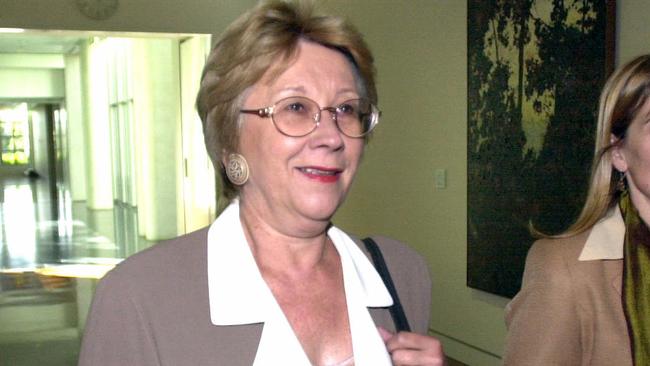Union Bill did little for women, says ex-ACTU boss
The first female president of the ACTU has lashed Bill Shorten for doing little to help women while he was head of the AWU.

The first female president of the ACTU has lashed Bill Shorten for doing little to help women and failing to represent their interests during his past life as head of the Australian Workers Union.
Jennie George, a respected women’s rights campaigner who led Australia’s union movement and then served as a federal Labor MP, has also declared “the boys’ club remains alive and well” inside the ALP Victorian right power base that Mr Shorten controls — with just two women MPs out of 10 in the House of Representatives.
“It’s fair to say that his union, the AWU, did not take the issue of women’s representation seriously in the decades of struggle to make the movement more representative of its membership,” she says.
Ms George’s scorching critique of Mr Shorten is in direct response to comments by Labor’s leader for a profile in men’s magazine GQ that he regretted not promoting more women “when I had the chance”.
“The best thing I can do now is to put as many women as possible in positions of power,’’ he said.
While welcoming Mr Shorten’s commitment as Opposition Leader to gender equality, Ms George says his ALP factional support base takes “the prize for dragging the chain” on female representation, and brands them “laggards”.
On Mr Shorten’s record with the AWU, Ms George says in a letter published by The Australian today that “the facts speak for themselves”.
Ms George says many male-dominated unions implemented strategies to redress a historical injustice over women’s representation, but Mr Shorten’s union was not one of them in her time.
Ms George, the ACTU’s first woman president from 1995 to 2000 and then Labor member for Throsby in NSW for almost a decade, singles out Mr Shorten’s record by highlighting his last annual return as secretary of the AWU’s Victorian branch in 2006 that showed only two women office-holders among 34 members on the branch executive.
Referring to one woman concerned, Tonya Stevens, Ms George says that “regrettably” her short career as an AWU official ended soon after.
She continues: “Aside from the other, there was not one woman on this list representing the interests of rank-and-file female union members, such as those at Chiquita Mushrooms and Cleanevent. So much for the union representing its base.”
Although the AWU historically represented workers in male-dominated industries such as shearing, mining and civil construction, its base has widened considerably over the decades with a large female membership in cleaning, fruit-picking and different types of process work.
Ms George’s references to Chiquita Mushrooms and Cleanevent reflect a particular sore point in the union’s recent history involving members who lost their jobs or had their wages cut with the AWU’s blessing. Mr Shorten was at the helm of the AWU’s Victorian branch at the time.
Ms George is well regarded by women in the labour movement as a feminist who was able to break the glass ceiling for others who followed her.
She was the first female secretary and first president of the NSW Teachers Federation, the first woman elected to the ACTU executive and the first woman elected ACTU president.
In her letter on Mr Shorten’s record, Ms George says there was no doubt significant progress had been made to improve the representation of Labor female MPs. But she attributes the gains largely to the efforts of the ALP left, of which she is a member, in making the party’s affirmative action policies work.
“This is most obvious in the elevation of Tanya Plibersek and Penny Wong into leadership positions,” she writes.
Unfortunately, Ms George says, “the boys’ club remains alive and well” in the ALP’s right faction in NSW and Victoria, the two largest states.
Singling out how there are only two women Labor MPs out of the 10 total from Mr Shorten’s Victorian group in the House of Representatives, she says: “It reminds me of the male enclaves in the union movement who resisted the inevitability of change.”
It was possible all 10 of these Victorian Labor MPs would have been men — except for intervention outside the normal party preselection process.
In the seat of Lalor, Julia Gillard was succeeded by a woman at the 2013 election because the former Labor prime minister insisted.
The preselection was won by the serving member, Joanne Ryan.
In Hotham, the male candidate preferred by Simon Crean to succeed him in 2013 bowed out after controversy and the current local member, Labor justice spokeswoman Clare O’Neil, was installed after intervention by the ALP’s national executive.
Ms George says: “Bill Shorten would surely be disappointed in the efforts of his factional support base. They take the prize for dragging the chain. The oft repeated statistics painting an overall picture of progress lets the laggards off the hook.”




